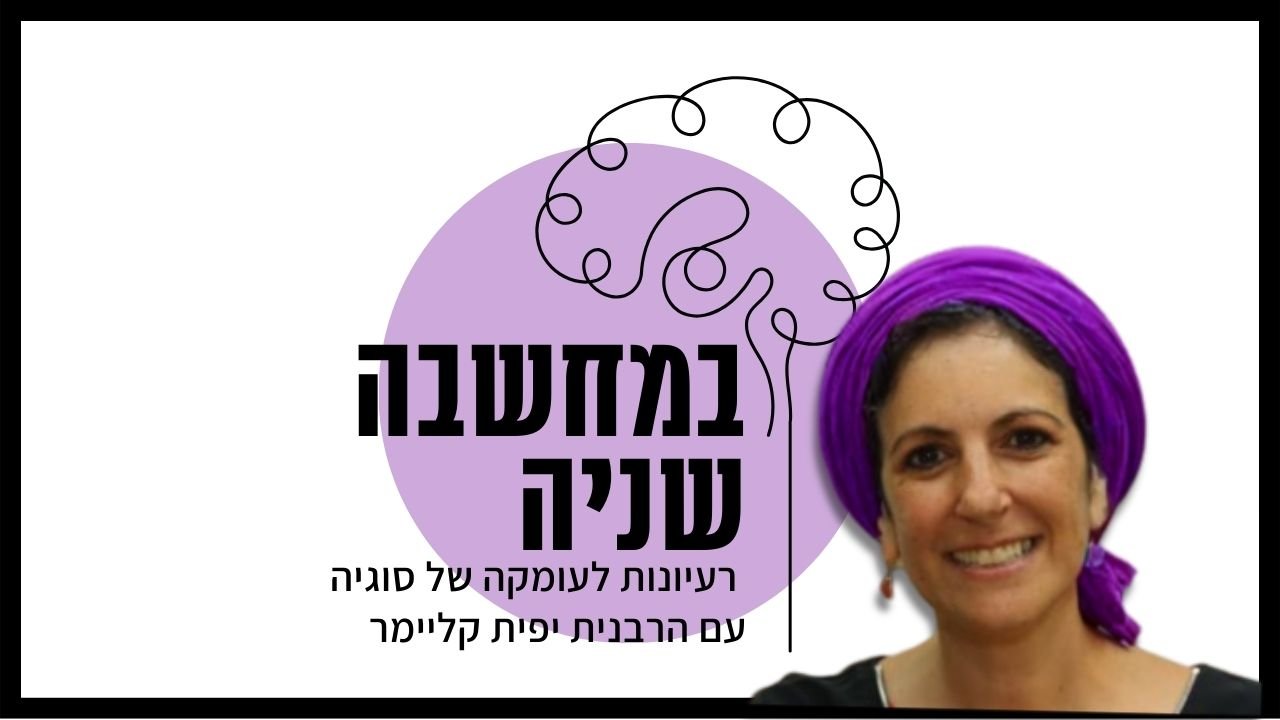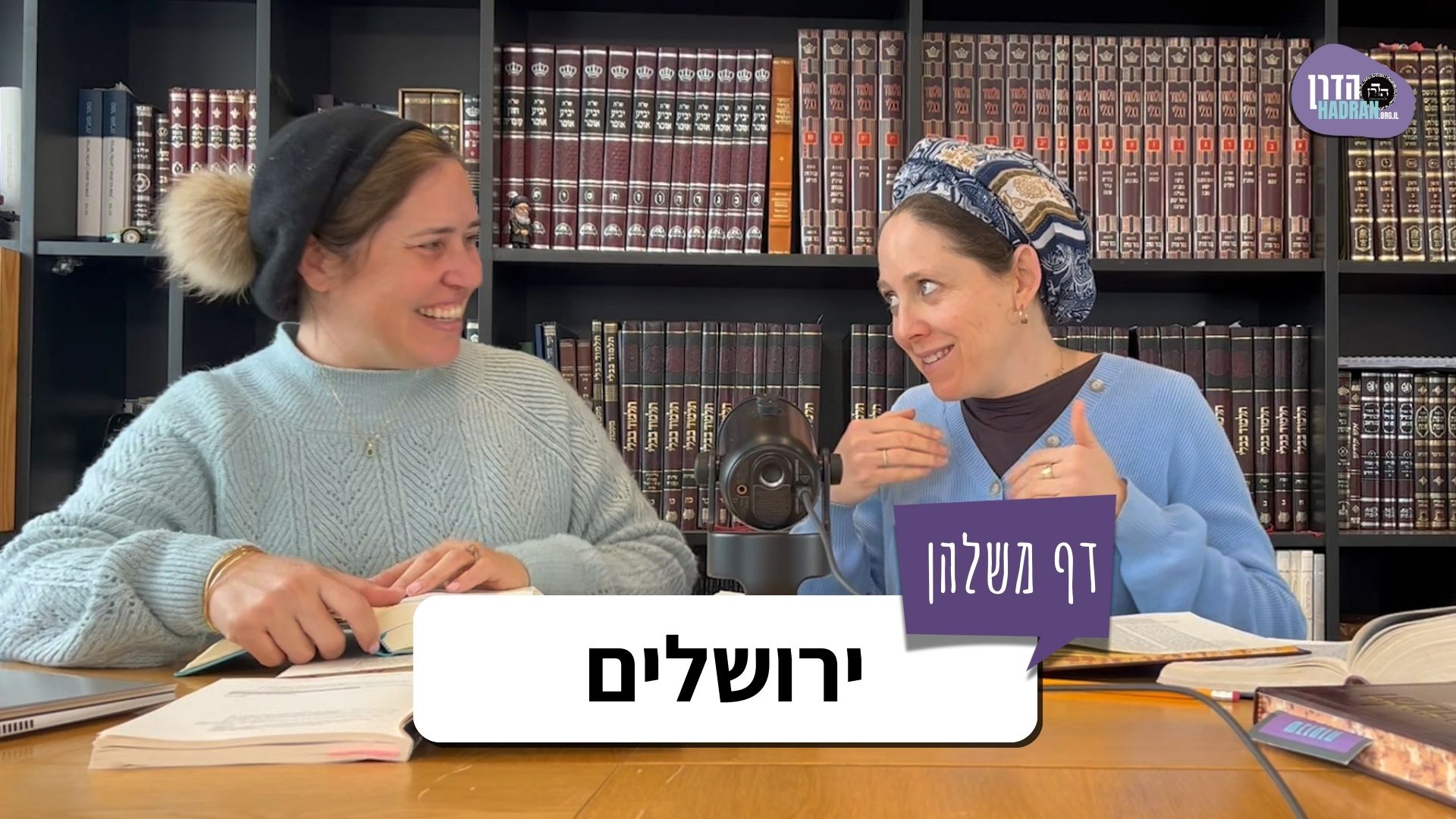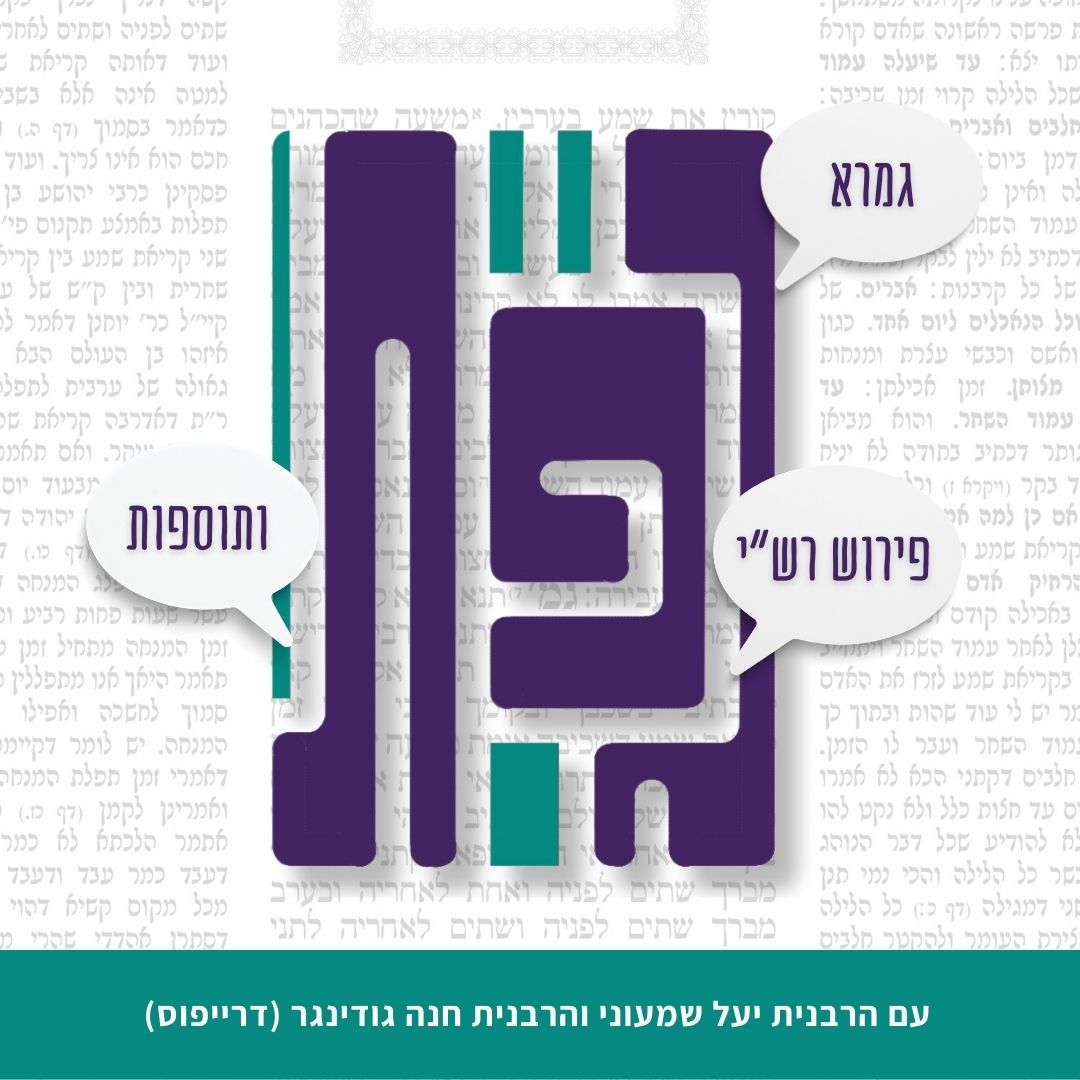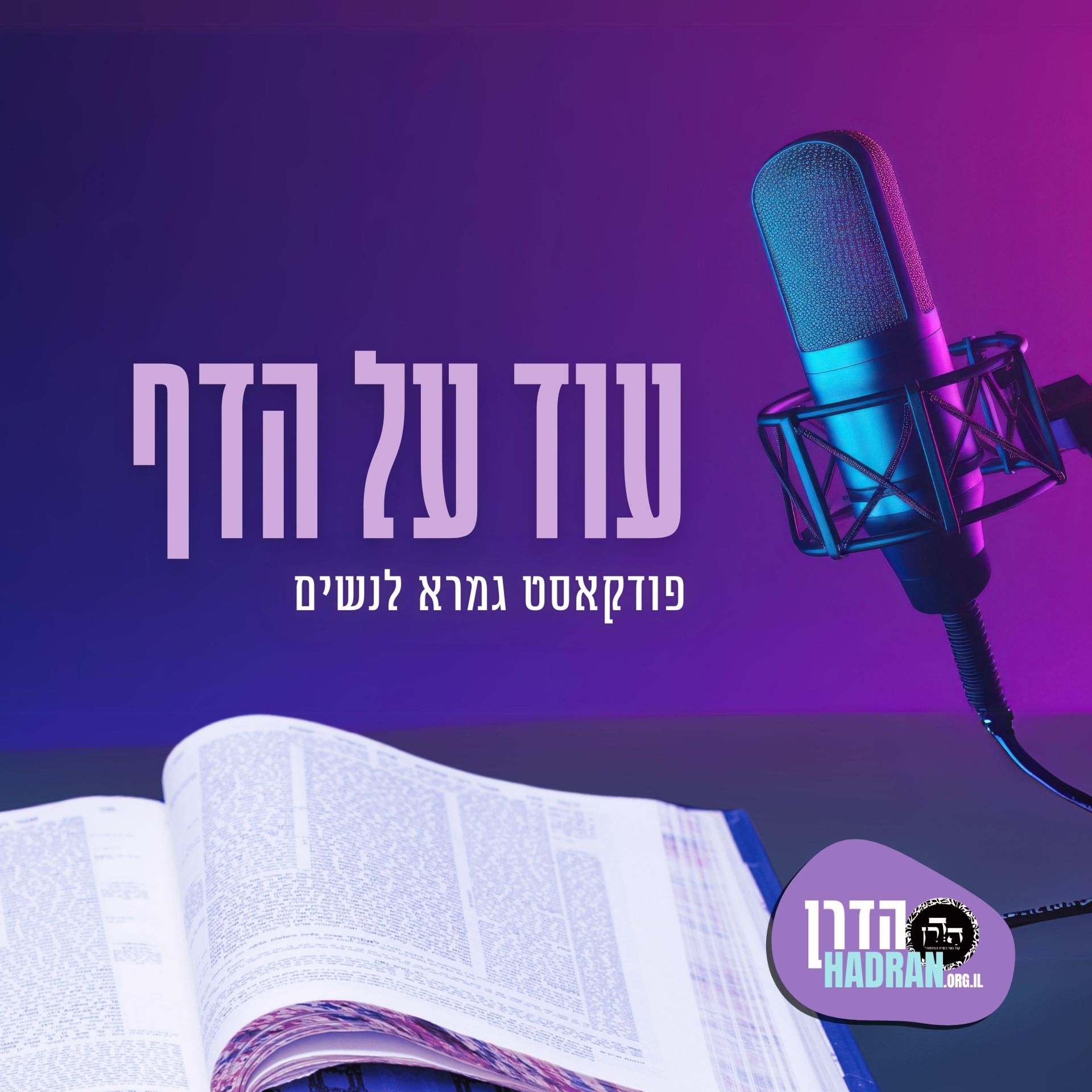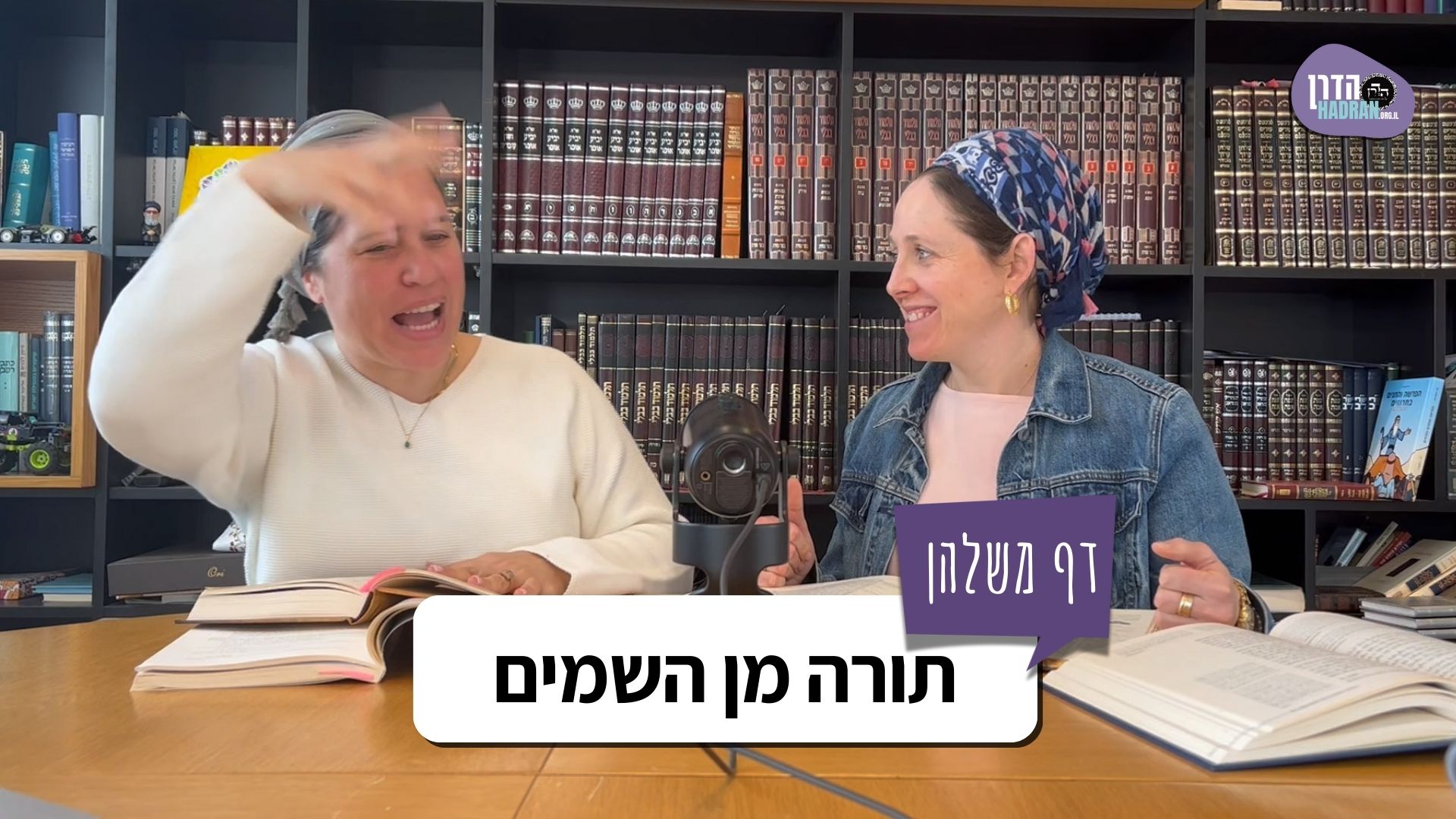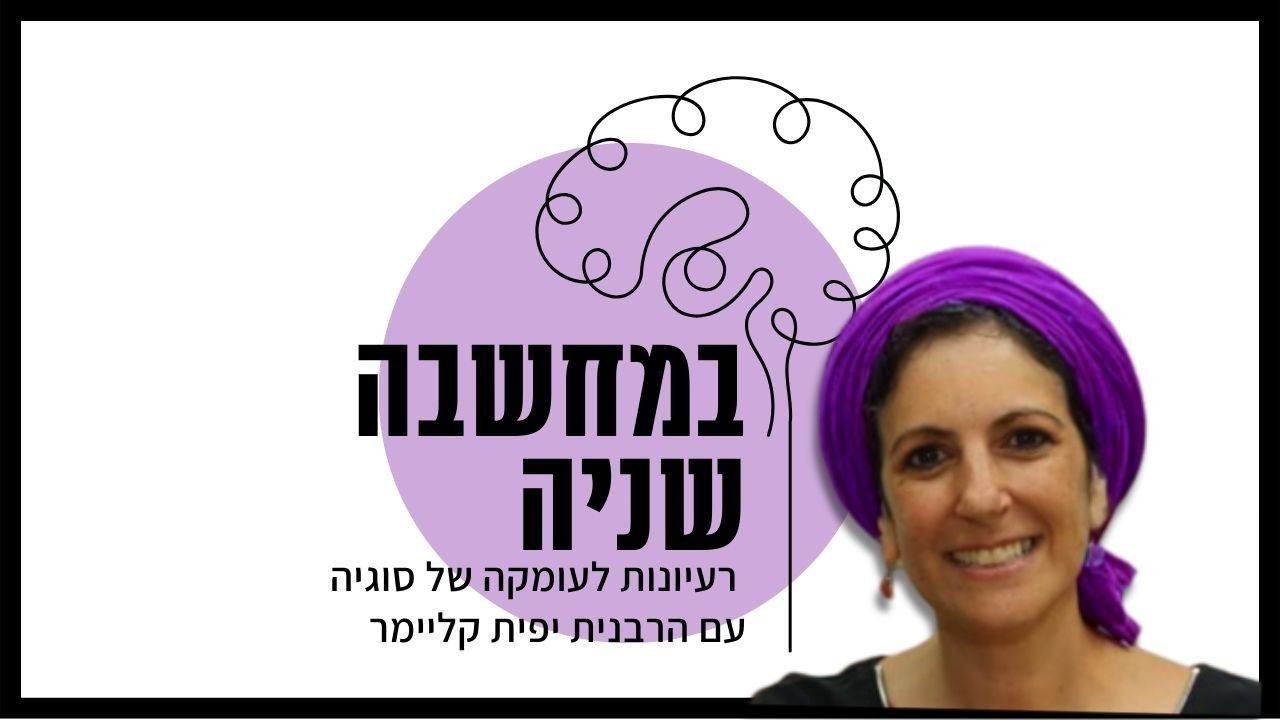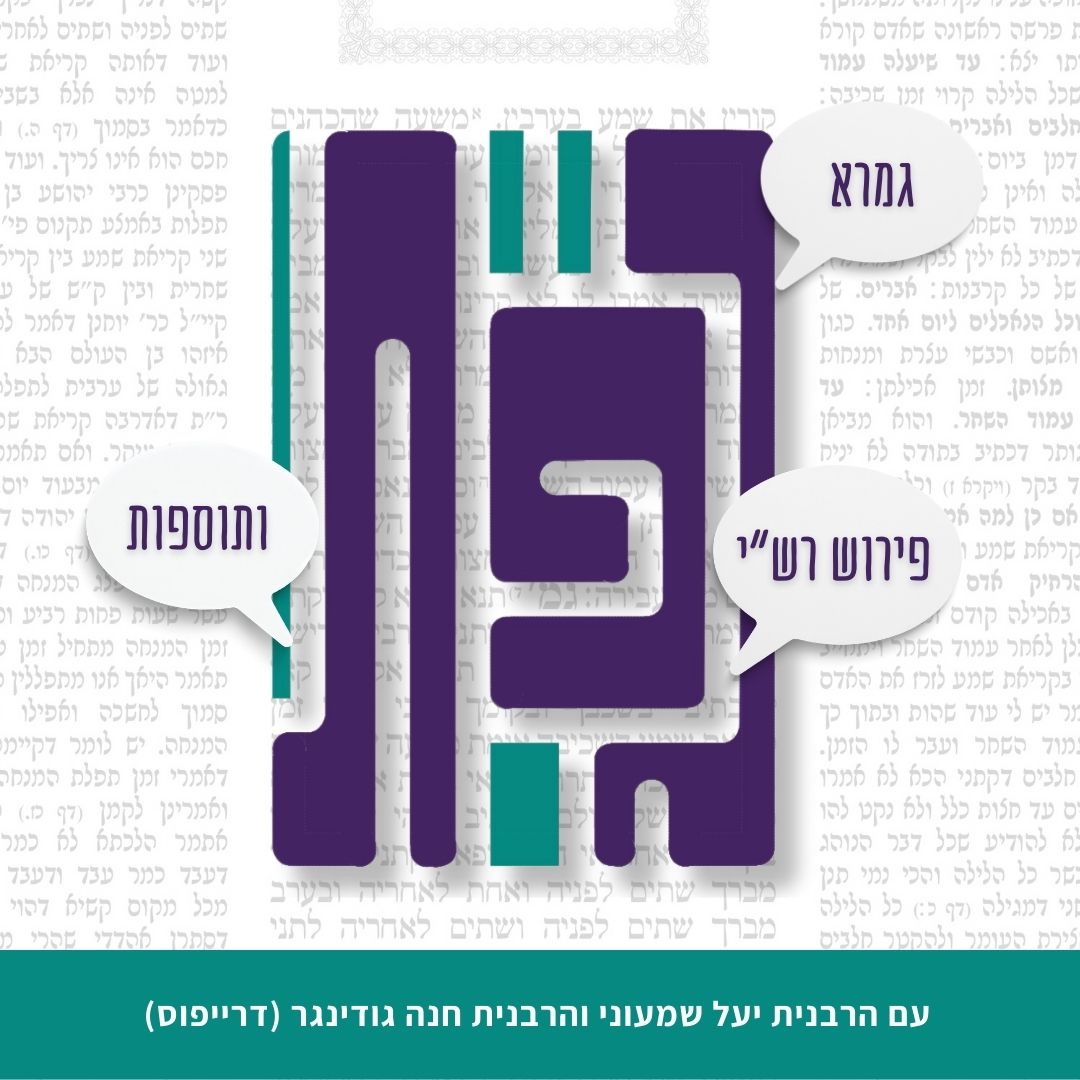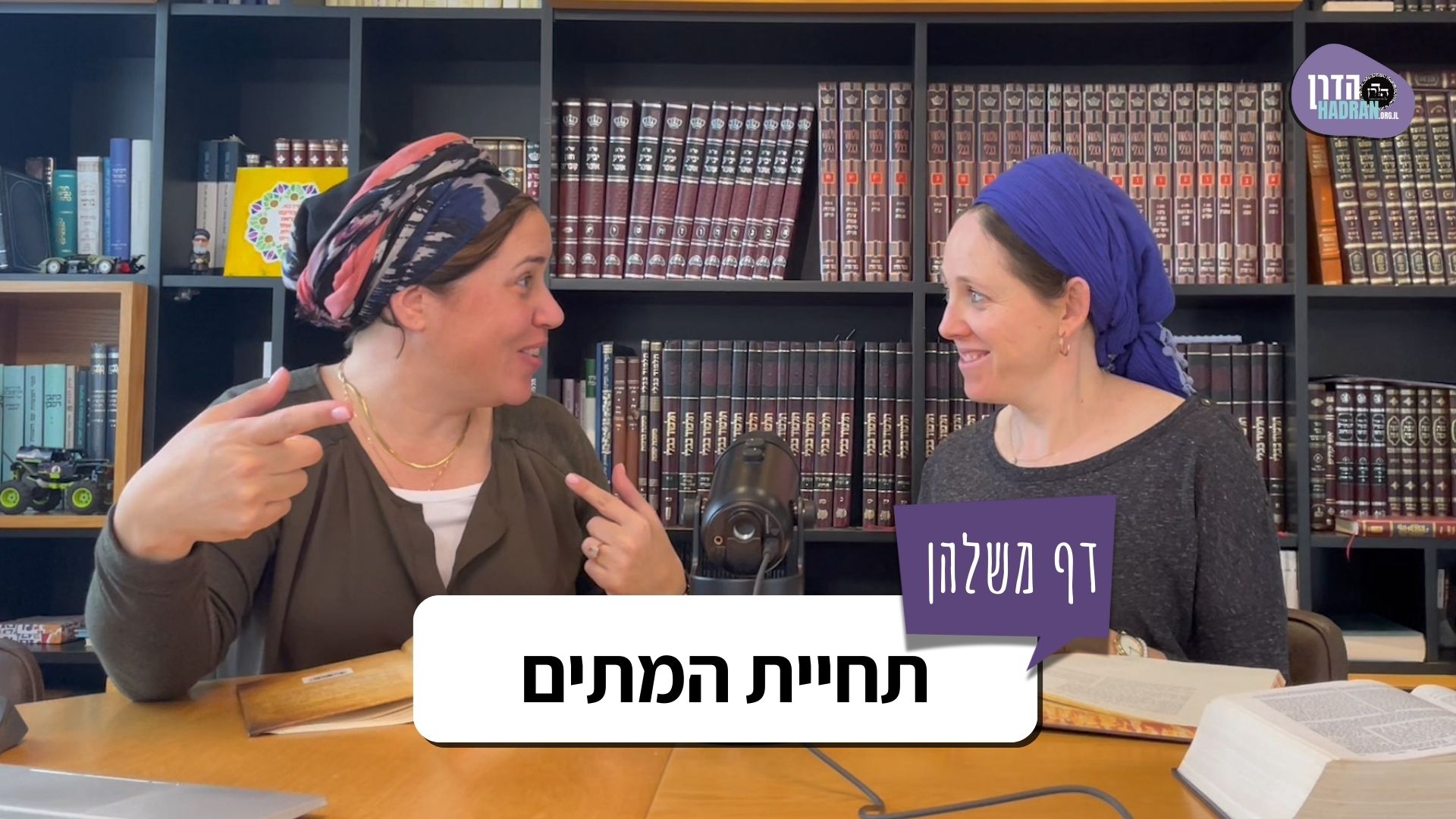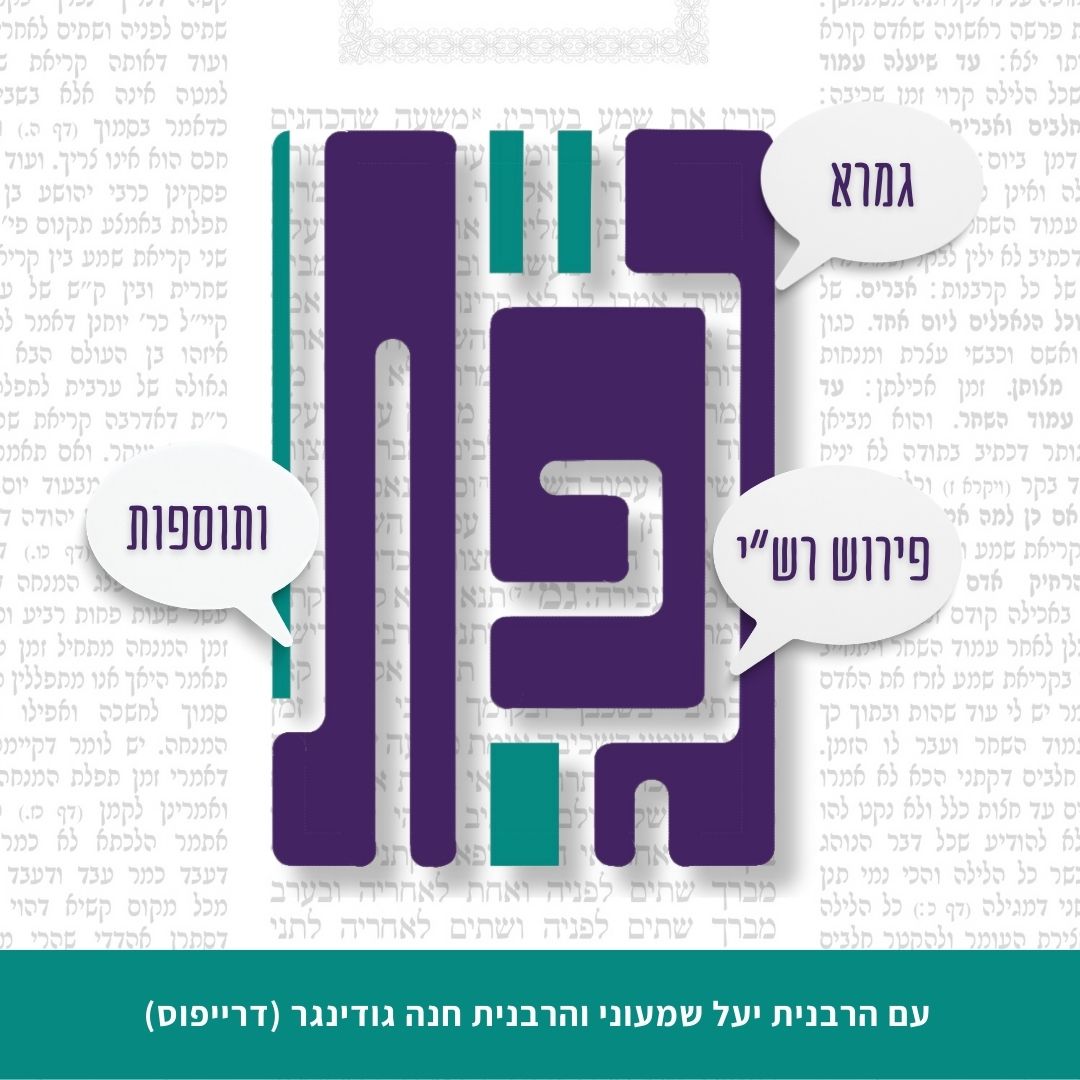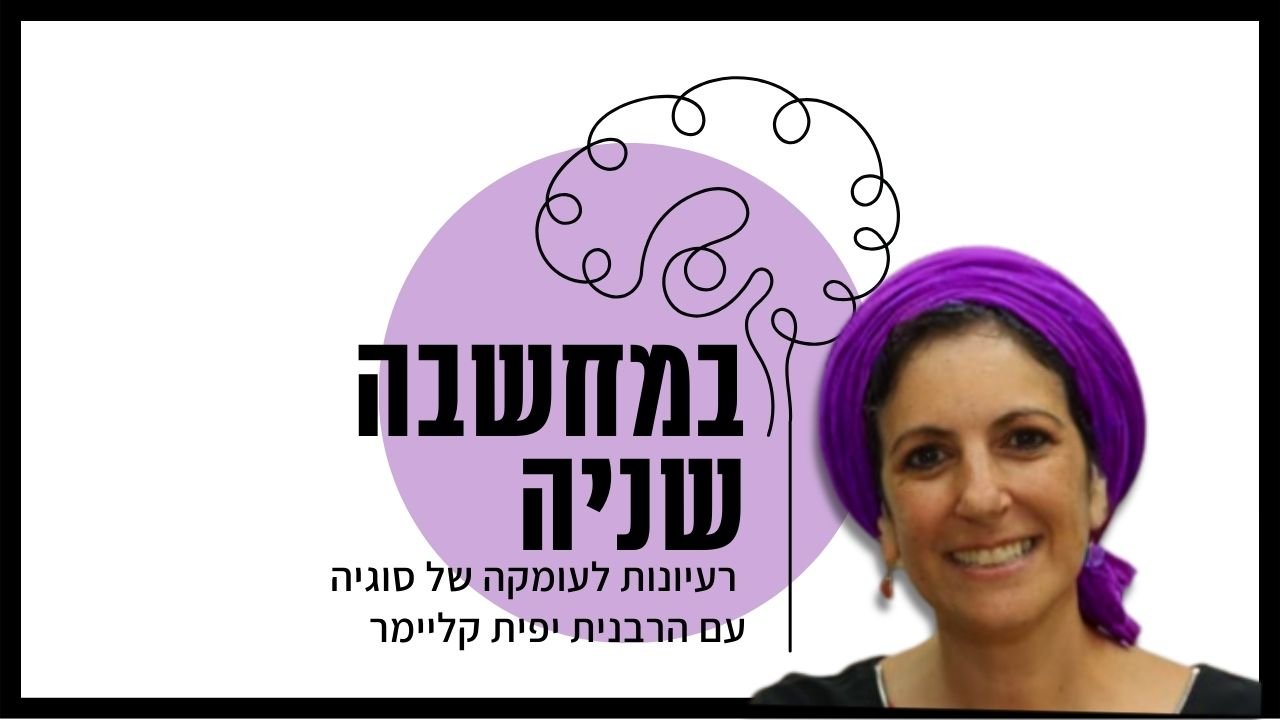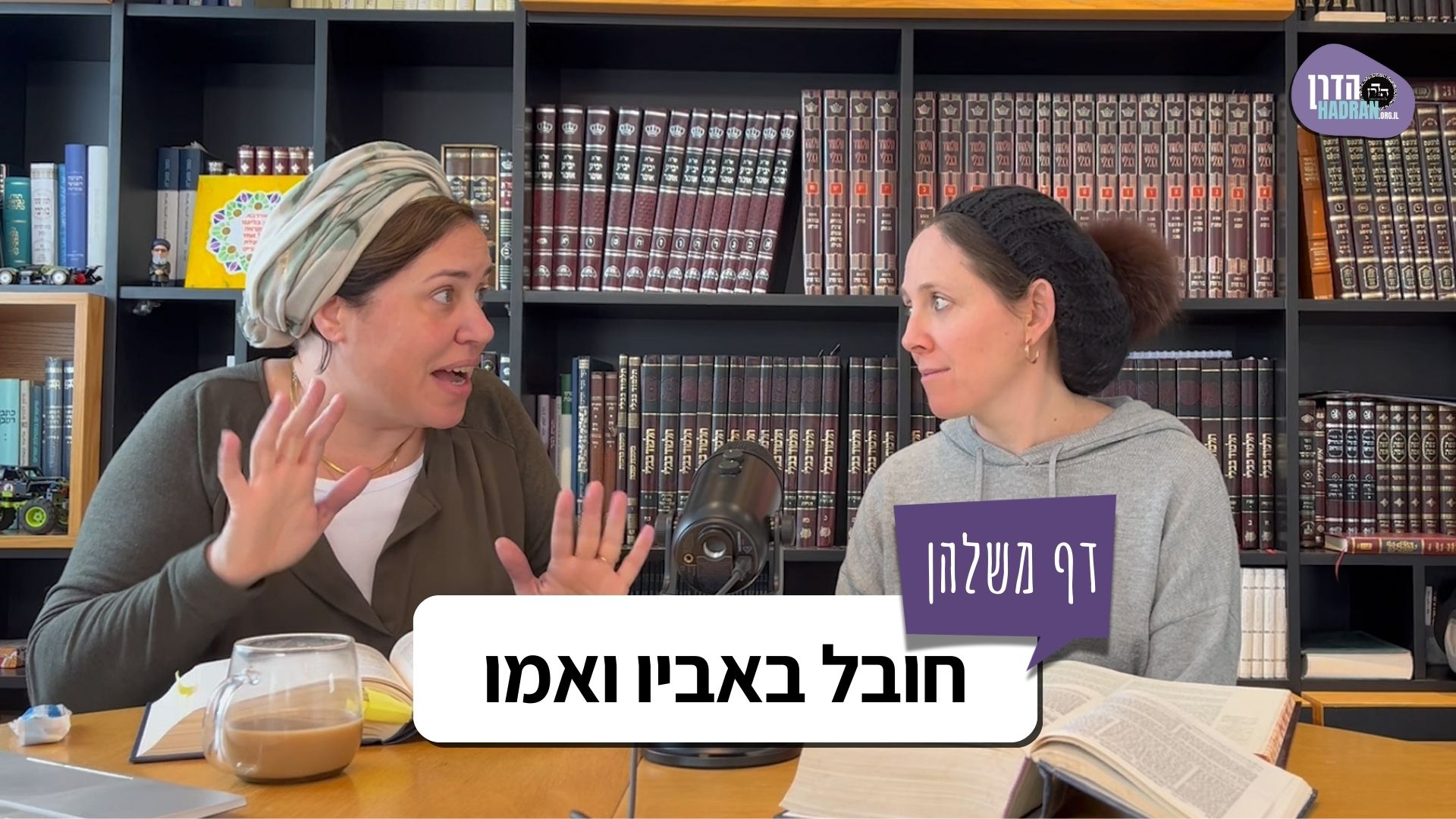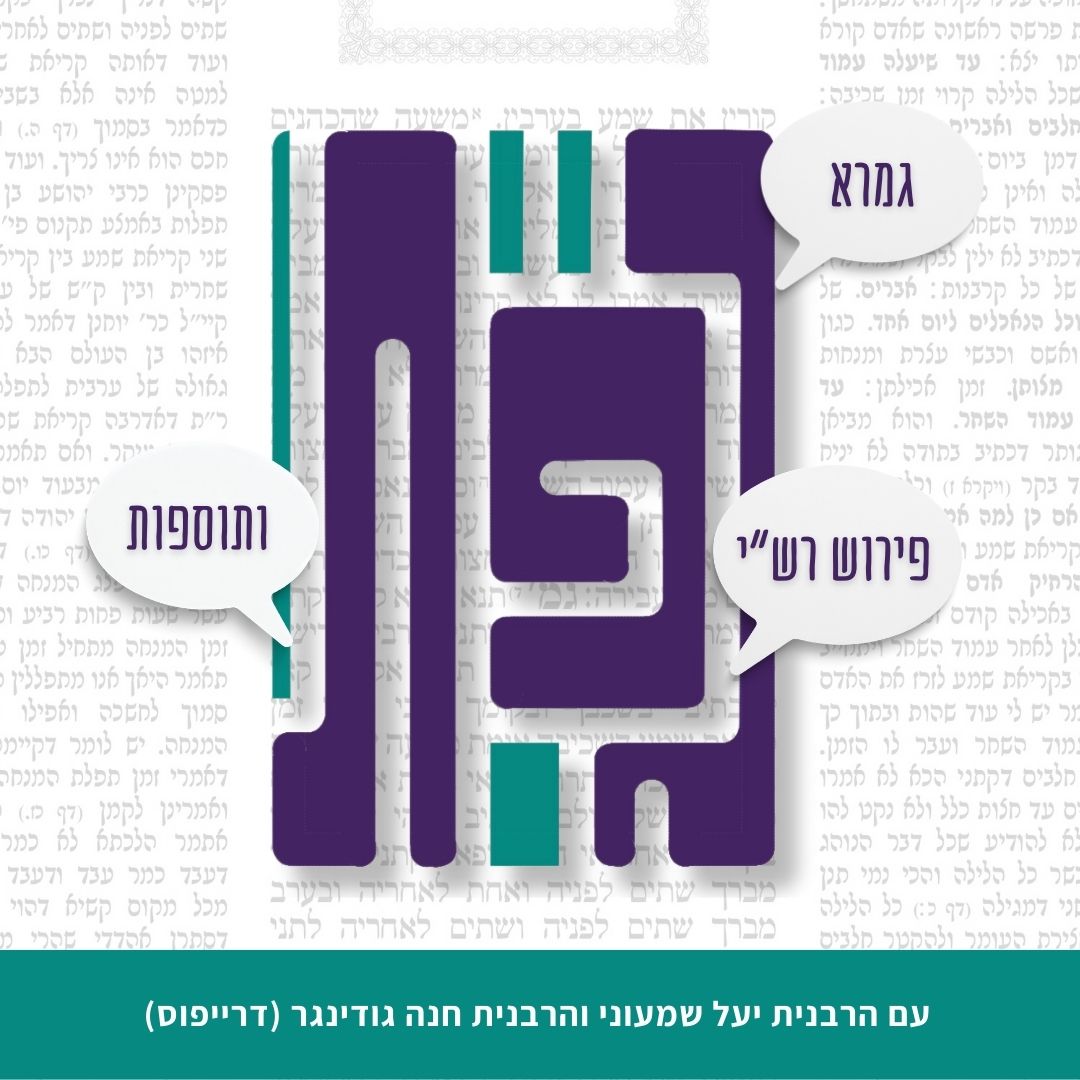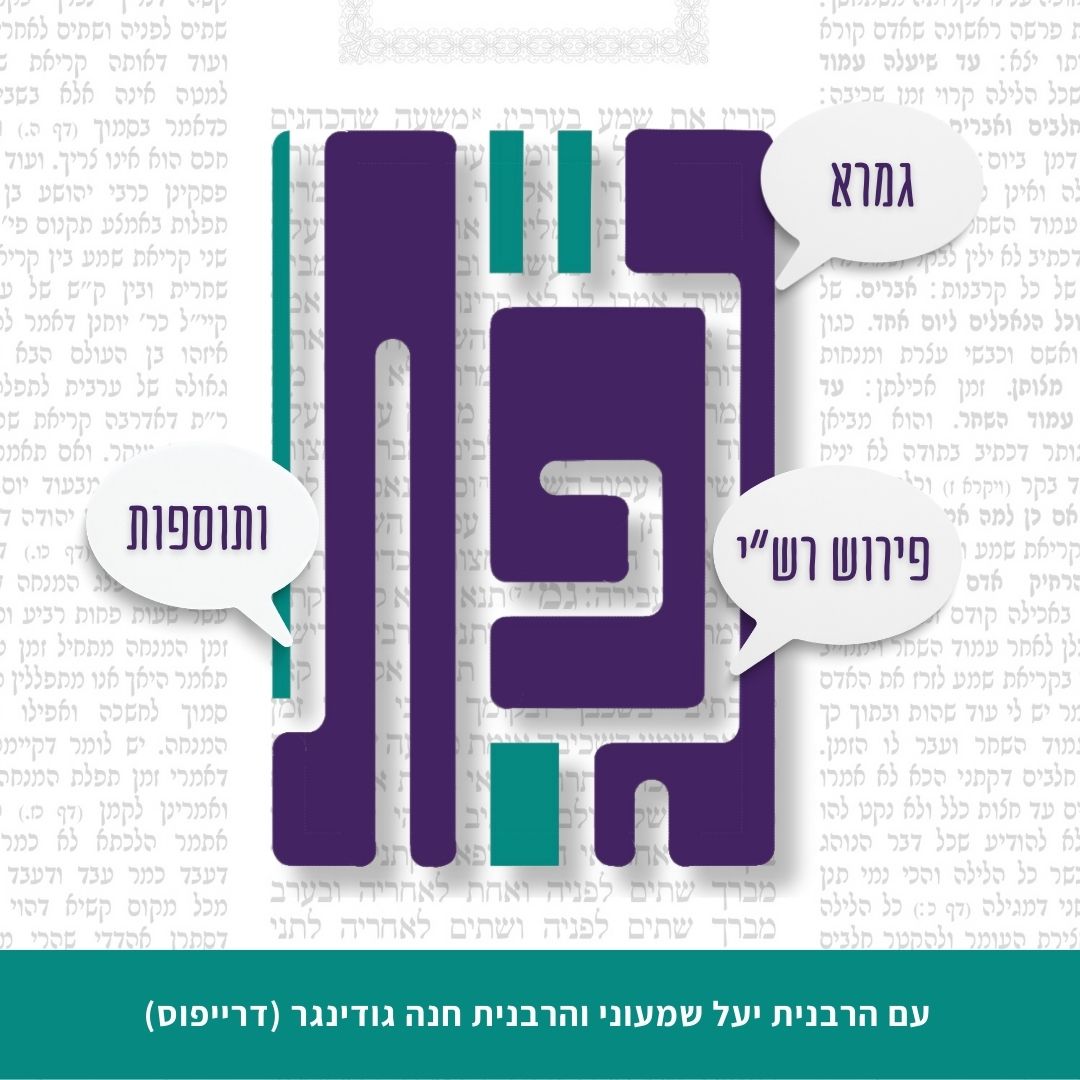סנהדרין קו
מַחְלִיף, וְשׇׁרָשָׁיו מְרוּבִּין. וַאֲפִילּוּ כׇּל רוּחוֹת שֶׁבָּעוֹלָם בָּאוֹת וְנוֹשְׁבוֹת בּוֹ, אֵין מְזִיזוֹת אוֹתוֹ מִמְּקוֹמוֹ, אֶלָּא הוּא הוֹלֵךְ וּבָא עִמָּהֶן. כֵּיוָן שֶׁדּוֹמְמוּ הָרוּחוֹת, עָמַד קָנֶה בִּמְקוֹמוֹ.
replenishes itself, as if it is cut another grows, and its roots are numerous. And even if all the winds that are in the world come and gust against it, they do not move it from its place and uproot it. Rather, it goes and comes with the winds. And once the winds subside the reed remains in its place.
אֲבָל בִּלְעָם הָרָשָׁע בֵּרְכָן בְּאֶרֶז. מָה אֶרֶז זֶה? אֵינוֹ עוֹמֵד בִּמְקוֹם מַיִם, וְשׇׁרָשָׁיו מוּעָטִין, וְאֵין גִּזְעוֹ מַחְלִיף. אֲפִילּוּ כׇּל הָרוּחוֹת שֶׁבָּעוֹלָם בָּאוֹת וְנוֹשְׁבוֹת בּוֹ, אֵין מְזִיזוֹת אוֹתוֹ מִמְּקוֹמוֹ. כֵּיוָן שֶׁנָּשְׁבָה בּוֹ רוּחַ דְּרוֹמִית, מִיָּד עוֹקַרְתּוֹ וְהוֹפַכְתּוֹ עַל פָּנָיו. וְלֹא עוֹד, אֶלָּא שֶׁזָּכָה קָנֶה לִיטּוֹל מִמֶּנּוּ קוּלְמוֹס לִכְתּוֹב מִמֶּנּוּ סִפְרֵי תוֹרָה, נְבִיאִים וּכְתוּבִים.
But Balaam the wicked blessed them with a cedar. There is an aspect of curse in that blessing, as he was saying they will be just like a cedar that does not stand in a place near water, and its roots are few relative to its height, and its trunk does not replenish itself, as if it is cut it does not grow back. And even if all the winds that are in the world come and gust against it, they do not move it from its place and uproot it; but once a southern wind gusts it immediately uproots the cedar and overturns it on its face. Moreover, it is the reed that was privileged to have a quill [kulmos] taken from it to write scrolls of Torah, Prophets, and Writings. Therefore, the curse of Ahijah is better than the blessing of Balaam.
״וַיַּרְא אֶת הַקֵּינִי וַיִּשָּׂא מְשָׁלוֹ״. אָמַר לוֹ בִּלְעָם לְיִתְרוֹ: קֵינִי, לֹא הָיִיתָ עִמָּנוּ בְּאוֹתָהּ עֵצָה? מִי הוֹשִׁיבְךָ אֵצֶל אֵיתָנֵי עוֹלָם?
§ It is stated with regard to Balaam: “And he looked at the Kenite and he took up his parable and said: Though firm is your dwelling place, and though your nest be set in rock” (Numbers 24:21). Balaam said to Yitro: Kenite, were you not in Egypt with us in that counsel to drown the newborn males of Israel? Who placed you alongside the mighty of the world?
וְהַיְינוּ דְּאָמַר רַבִּי חִיָּיא בַּר אַבָּא אָמַר רַבִּי סִימַאי: שְׁלֹשָׁה הָיוּ בְּאוֹתָהּ עֵצָה, אֵלּוּ הֵן: בִּלְעָם, אִיּוֹב וְיִתְרוֹ. בִּלְעָם שֶׁיָּעַץ – נֶהֱרַג, אִיּוֹב שֶׁשָּׁתַק – נִידּוֹן בְּיִסּוּרִין, וְיִתְרוֹ שֶׁבָּרַח – זָכוּ בְּנֵי בָנָיו לֵישֵׁב בְּלִשְׁכַּת הַגָּזִית, שֶׁנֶּאֱמַר: ״וּמִשְׁפְּחוֹת סוֹפְרִים יוֹשְׁבֵי יַעְבֵּץ תִּרְעָתִים שִׁמְעָתִים שׂוּכָתִים הֵמָּה הַקִּינִים הַבָּאִים מֵחַמַּת אֲבִי בֵית רֵכָב״, וּכְתִיב: ״וּבְנֵי קֵינִי חֹתֵן מֹשֶׁה עָלוּ מֵעִיר הַתְּמָרִים״.
The Gemara comments: And that is what Rabbi Ḥiyya bar Abba says that Rabbi Simai says: Three were associates in that counsel, and they are: Balaam, Job, and Yitro. Balaam, who advised to drown the newborn males, was killed. Job, who was silent and was reluctant to express his opinion, was sentenced to suffer afflictions. And Yitro, who fled after he disagreed with that counsel and Pharaoh sought to kill him, his descendants were privileged to sit as scribes in session with the Sanhedrin in the Chamber of Hewn Stone, as it is stated: “And the families of the scribes who dwelt in Jabez; the Tirathites, the Shimeathites, the Sucathites. These were the Kenites who came of Hammath the father of the house of Rechab” (I Chronicles 2:55). And it is written there with regard to the identity of the Kenites: “And the children of the Kenite, Moses’ father-in-law, went up from the city of the palm trees” (Judges 1:16).
״וַיִּשָּׂא מְשָׁלוֹ וַיֹּאמַר אוֹי מִי יִחְיֶה מִשֻּׂמוֹ אֵל״. אָמַר רַבִּי שִׁמְעוֹן בֶּן לָקִישׁ: אוֹי מִי שֶׁמְּחַיֶּה עַצְמוֹ בְּשֵׁם אֵל. אָמַר רַבִּי יוֹחָנָן: אוֹי לָהּ לָאוּמָּה שֶׁתִּמָּצֵא בְּשָׁעָה שֶׁהַקָּדוֹשׁ בָּרוּךְ הוּא עוֹשֶׂה פִּדְיוֹן לְבָנָיו. מִי מֵטִיל כְּסוּתוֹ בֵּין לָבִיא לִלְבִיאָה בְּשָׁעָה שֶׁנִּזְקָקִין זֶה עִם זֶה?
With regard to the verse: “And he took up his parable, and said: Alas, he who lives from what God has appointed him” (Numbers 24:23), Rabbi Shimon ben Lakish says: Woe unto one who sustains himself in an indulgent manner in the name of God, i.e., Balaam, whose livelihood was from speaking in the name of God. Rabbi Yoḥanan says: Woe unto the nation that will be found hindering the Jewish people at the time when the Holy One, Blessed be He, redeems His children. Who places his garment between a male lion and a female lion when they are mating? One who does so will certainly die.
״וְצִים מִיַּד כִּתִּים״, אָמַר רַב: לִיבּוֹן אַסְפִּיר. ״וְעִנּוּ אַשּׁוּר וְעִנּוּ עֵבֶר״ – עַד אַשּׁוּר קָטְלִי מִיקְטָל, מִכָּאן וְאֵילָךְ מְשַׁעְבְּדִי שַׁיעְבּוֹדֵי.
With regard to the verse: “And ships come from the coast of Kittim” (Numbers 24:24), Rav says: This is the Roman legion [libbun aspir] that will attack Assyria. “And they shall afflict Assyria, and they shall afflict Eber” (Numbers 24:24). Before they reach Assyria they will kill the Jewish people; from that point forward they will enslave them and not kill them.
״הִנְנִי הוֹלֵךְ לְעַמִּי לְכָה אִיעָצְךָ אֲשֶׁר יַעֲשֶׂה הָעָם הַזֶּה לְעַמְּךָ״. ״עַמְּךָ לְעָם הַזֶּה״ מִיבְּעֵי לֵיהּ! אָמַר רַבִּי אַבָּא בַּר כָּהֲנָא: כְּאָדָם שֶׁמְּקַלֵּל אֶת עַצְמוֹ וְתוֹלֶה קִלְלָתוֹ בַּאֲחֵרִים.
§ Balaam said to Balak: “Behold, I go to my people; come therefore, and I shall advise you what this people shall do to your people” (Numbers 24:14). Ostensibly, he should have said: What your people shall do to this people. Rabbi Abba bar Kahana says: Balaam spoke like a person who curses himself but does not wish to utter so awful a matter and instead ascribes his curse to take effect on others.
אָמַר לָהֶם: אֱלֹהֵיהֶם שֶׁל אֵלּוּ שׂוֹנֵא זִימָּה הוּא, וְהֵם מִתְאַוִּים לִכְלֵי פִשְׁתָּן. בּוֹא וְאַשִּׂיאֲךָ עֵצָה: עֲשֵׂה לָהֶן קְלָעִים, וְהוֹשֵׁיב בָּהֶן זוֹנוֹת, זְקֵינָה מִבַּחוּץ וְיַלְדָּה מִבִּפְנִים, וְיִמְכְּרוּ לָהֶן כְּלֵי פִשְׁתָּן.
Balaam said to them: The God of these Jewish people despises lewdness, and they desire linen garments, as they have no new garments; come, and I will give you advice. Make for them enclosures using wall hangings and seat prostitutes in them, with an old woman outside the enclosure and a young woman inside, and have the women sell them linen garments.
עָשָׂה לָהֶן קְלָעִים מֵהַר שֶׁלֶג עַד בֵּית הַיְשִׁימוֹת, וְהוֹשִׁיב בָּהֶן זוֹנוֹת, זְקֵינָה מִבַּחוּץ וְיַלְדָּה מִבִּפְנִים. וּבְשָׁעָה שֶׁיִּשְׂרָאֵל אוֹכְלִין וְשׁוֹתִין וּשְׂמֵחִין וְיוֹצְאִין לְטַיֵּיל בְּשׁוּק, אוֹמֶרֶת לוֹ הַזְּקֵינָה: אִי אַתָּה מְבַקֵּשׁ כְּלֵי פִשְׁתָּן? זְקֵינָה אוֹמֶרֶת לוֹ בְּשָׁוֶה, וְיַלְדָּה אוֹמֶרֶת לוֹ בְּפָחוֹת, שְׁתַּיִם וְשָׁלֹשׁ פְּעָמִים.
Balak made for them enclosures using wall hangings from the snow mountain, the Ḥermon, until Beit HaYeshimot, and he sat prostitutes in them, with an old woman outside and a young woman on the inside. And at the time when Jewish people were eating and drinking and were glad and going out to stroll in the marketplace, the old woman would say to a Jew: Aren’t you seeking linen garments? He would enter the enclosure and ask the price, the old woman would quote him a price equal to its value, and the young woman would quote him a price less than its value. That scenario would repeat itself two or three times.
וְאַחַר כָּךְ אוֹמֶרֶת לוֹ: הֲרֵי אַתְּ כְּבֶן בַּיִת, שֵׁב בְּרוֹר לְעַצְמְךָ. וְצַרְצוּרי שֶׁל יַיִן עַמּוֹנִי מוּנָּח אֶצְלָהּ, וַעֲדַיִין לֹא נֶאֱסַר יַיִן שֶׁל עַמּוֹנִי וְלֹא יַיִן שֶׁל גּוֹיִם. אָמְרָה לוֹ: רְצוֹנֶךָ שֶׁתִּשְׁתֶּה כּוֹס שֶׁל יַיִן? כֵּיוָן שֶׁשָּׁתָה, בָּעַר בּוֹ.
And thereafter she would say to him: You are like a member of our household, sit and choose for yourself the merchandise that you want. And a jug of Ammonite wine was placed near her, and neither Ammonite wine nor gentile wine had been prohibited yet for Jews. She said to him: Is it your wish to drink a cup of wine? Once he drank the wine, his evil inclination burned within him.
אֲמַר לָהּ: הִשָּׁמֵיעִי לִי. הוֹצִיאָה יִרְאָתָהּ מִתּוֹךְ חֵיקָהּ, אָמְרָה לוֹ: עֲבוֹד לָזֶה! אֲמַר לָהּ: הֲלֹא יְהוּדִי אֲנִי? אָמְרָה לוֹ: וּמָה אִיכְפַּת לְךָ? כְּלוּם מְבַקְּשִׁים מִמְּךָ אֶלָּא פִּיעוּר? [וְהוּא אֵינוֹ יוֹדֵעַ שֶׁעֲבוֹדָתָהּ בְּכָךְ]. וְלֹא עוֹד אֶלָּא שֶׁאֵינִי מַנַּחְתְּךָ עַד שֶׁתִּכְפּוֹר בְּתוֹרַת מֹשֶׁה רַבְּךָ, שֶׁנֶּאֱמַר: ״הֵמָּה בָּאוּ בַּעַל פְּעוֹר וַיִּנָּזְרוּ לַבֹּשֶׁת וַיִּהְיוּ שִׁקּוּצִים כְּאׇהֳבָם״.
He then said to her: Submit to me and engage in intercourse with me. She then removed the idol that she worshipped from her lap and said to him: Worship this. He said to her: Am I not Jewish? I am therefore forbidden from engaging in idol worship. She said to him: And what is your concern? We are asking you to do nothing more than defecate in its presence. But he does not know that its worship is conducted in that manner. Once he did so, she said to him: Moreover, I will not leave you until you deny the Torah of Moses your teacher, as it is stated: “But when they came to Ba’al-Peor they separated themselves to the shameful item; and they became detestable like that which they loved” (Hosea 9:10). They devoted themselves to the disgrace of defecation, and detested the name of God.
״וַיֵּשֶׁב יִשְׂרָאֵל בַּשִּׁטִּים״. רַבִּי אֱלִיעֶזֶר אוֹמֵר: שִׁטִּים שְׁמָהּ. רַבִּי יְהוֹשֻׁעַ אוֹמֵר: שֶׁנִּתְעַסְקוּ בְּדִבְרֵי שְׁטוּת.
With regard to the verse: “And Israel dwelt in Shittim” (Numbers 25:1), Rabbi Eliezer says: Shittim is the name of the place. Rabbi Yehoshua says: It is an allusion to the fact that they were engaged in matters of nonsense [shetut], i.e., prostitution and idol worship.
״וַתִּקְרֶאןָ לָעָם לְזִבְחֵי אֱלֹהֵיהֶן״, רַבִּי אֱלִיעֶזֶר אוֹמֵר: עֲרוּמּוֹת פָּגְעוּ בָּהֶן. רַבִּי יְהוֹשֻׁעַ אוֹמֵר: שֶׁנַּעֲשׂוּ כּוּלָּן בַּעֲלֵי קְרָיִין.
With regard to the verse: “And they called [vatikrena] the people to the offerings of their gods” (Numbers 25:2), Rabbi Eliezer says: Naked women encountered them. Rabbi Yehoshua says: They all became those who experienced a seminal emission [kerayin] resulting from the lust that they experienced.
מַאי לְשׁוֹן ״רְפִידִים״? רַבִּי אֱלִיעֶזֶר אוֹמֵר: רְפִידִים שְׁמָהּ. רַבִּי יְהוֹשֻׁעַ אוֹמֵר: שֶׁרִיפּוּ עַצְמָן מִדִּבְרֵי תוֹרָה, שֶׁנֶּאֱמַר: ״לֹא הִפְנוּ אָבוֹת אֶל בָּנִים מֵרִפְיוֹן יָדָיִם״.
Apropos the homiletic interpretation of the names of places, the Gemara asks: What is the connotation of the term Rephidim (see Exodus 19:2)? Rabbi Eliezer says: Rephidim is the name of the place. Rabbi Yehoshua says: It is an allusion to the fact that they enfeebled [rippu] themselves with regard to engaging in matters of Torah, as it is stated: “The fathers do not look back to their children from feebleness [rifyon] of hands” (Jeremiah 47:3). There too, the connotation of the name is dereliction in the study of Torah.
אָמַר רַבִּי יוֹחָנָן: כׇּל מָקוֹם שֶׁנֶּאֱמַר ״וַיֵּשֶׁב״ אֵינוֹ אֶלָּא לְשׁוֹן צַעַר, שֶׁנֶּאֱמַר: ״וַיֵּשֶׁב יִשְׂרָאֵל בַּשִּׁטִּים וַיָּחֶל הָעָם לִזְנוֹת אֶל בְּנוֹת מוֹאָב״. ״וַיֵּשֶׁב יַעֲקֹב בְּאֶרֶץ מְגוּרֵי אָבִיו בְּאֶרֶץ כְּנָעַן״, ״וַיָּבֵא יוֹסֵף אֶת דִּבָּתָם רָעָה אֶל אֲבִיהֶם״. וְנֶאֱמַר: ״וַיֵּשֶׁב יִשְׂרָאֵל בְּאֶרֶץ גֹּשֶׁן״, ״וַיִּקְרְבוּ יְמֵי יִשְׂרָאֵל לָמוּת״. ״וַיֵּשֶׁב יְהוּדָה וְיִשְׂרָאֵל לָבֶטַח אִישׁ תַּחַת גַּפְנוֹ וְתַחַת תְּאֵנָתוֹ״, ״וַיָּקֶם ה׳ שָׂטָן לִשְׁלֹמֹה אֵת הֲדַד הָאֲדֹמִי מִזֶּרַע הַמֶּלֶךְ הוּא בֶּאֱדוֹם״.
Rabbi Yoḥanan says: Everywhere that it is stated: And he dwelt, it is nothing other than an expression of pain, of an impending calamity, as it is stated: “And Israel dwelt in Shittim, and the people began to commit harlotry with the daughters of Moab” (Numbers 25:1). It is stated: “And Jacob dwelt in the land where his father had sojourned in the land of Canaan” (Genesis 37:1), and it is stated thereafter: “And Joseph brought evil report of them to his father” (Genesis 37:2), which led to the sale of Joseph. And it is stated: “And Israel dwelt in the land of Egypt in the land of Goshen” (Genesis 47:27), and it is stated thereafter: “And the time drew near that Israel was to die” (Genesis 47:29). It is stated: “And Judah and Israel dwelt safely, every man under his vine and under his fig tree” (I Kings 5:5), and it is stated thereafter: “And the Lord raised up an adversary to Solomon, Hadad the Edomite; he was of the king’s seed in Edom” (I Kings 11:14).
״וְאֶת מַלְכֵי מִדְיָן הָרְגוּ עַל חַלְלֵיהֶם וְגוֹ׳ וְאֶת בִּלְעָם בֶּן בְּעוֹר הָרְגוּ בֶּחָרֶב״. בִּלְעָם מַאי בָּעֵי הָתָם? אָמַר רַבִּי יוֹחָנָן: שֶׁהָלַךְ לִיטּוֹל שְׂכַר עֶשְׂרִים וְאַרְבָּעָה אֶלֶף [שֶׁהִפִּיל מִיִּשְׂרָאֵל]. אָמַר מָר זוּטְרָא בַּר טוֹבִיָּה אָמַר רַב, הַיְינוּ דְּאָמְרִי אִינָשֵׁי: גַּמְלָא אֲזַלָא לְמִיבְעֵי קַרְנֵי, אוּדְנֵי דַּהֲווֹ לֵיהּ גְּזִיזָן מִינֵּיהּ.
§ With regard to Balaam, it is stated: “And they slew the kings of Midian, with the rest of their slain…And Balaam, son of Beor, they slew with the sword” (Numbers 31:8). The Gemara asks: Balaam, what did he seek there; what was his role in that war? He lived in Aram. Rabbi Yoḥanan says: He went to collect payment for twenty-four thousand members of the Jewish people, whom he felled with his advice. Mar Zutra bar Toviya says that Rav says that this is in accordance with the adage that people say: A camel goes to seek horns and the ears that it had are severed from it. Not only was Balaam unsuccessful in collecting his fee, he also lost his life.
״וְאֶת בִּלְעָם בֶּן בְּעוֹר הַקּוֹסֵם״. קוֹסֵם? נָבִיא הוּא! אָמַר רַבִּי יוֹחָנָן: בַּתְּחִלָּה נָבִיא, וּלְבַסּוֹף קוֹסֵם. אָמַר רַב פָּפָּא הַיְינוּ דְּאָמְרִי אִינָשֵׁי: מִסְּגָנֵי וְשִׁילְטִי הֲוַאי, אִיַּיזַן לְגַבְרֵי נַגָּרֵי.
It is stated: “And Balaam, son of Beor, the diviner, did the children of Israel slay with the sword among the rest of their slain” (Joshua 13:22). The Gemara asks: Was he a diviner? He is a prophet. Rabbi Yoḥanan says: Initially he was a prophet, but ultimately, he lost his capacity for prophecy and remained merely a diviner. Rav Pappa says that this is in accordance with the adage that people say: This woman was descended from princes and rulers, and was licentious with carpenters.
״הָרְגוּ בְנֵי יִשְׂרָאֵל [בַּחֶרֶב] אֶל חַלְלֵיהֶם״, אָמַר רַב: שֶׁקִּיְּימוּ בּוֹ אַרְבַּע מִיתוֹת – סְקִילָה, וּשְׂרֵיפָה, הֶרֶג, וָחֶנֶק.
With regard to the latter part of the verse: “And Balaam, son of Beor, the diviner, did the children of Israel slay with the sword among the rest of their slain” (Joshua 13:22), Rav says: It means that they accomplished in him all four means of court-imposed executions: Stoning, and burning, beheading, and strangulation.
אֲמַר לֵיהּ הָהוּא מִינָא לְרַבִּי חֲנִינָא: מִי שְׁמִיעַ לָךְ בִּלְעָם בַּר כַּמָּה הֲוָה? אֲמַר לֵיהּ: מִיכְתָּב לָא כְּתִיב, אֶלָּא מִדִּכְתִיב ״אַנְשֵׁי דָמִים וּמִרְמָה לֹא יֶחֱצוּ יְמֵיהֶם״, בַּר תְּלָתִין וּתְלָת שְׁנִין אוֹ בַּר תְּלָתִין וְאַרְבַּע. אֲמַר לֵיהּ: שַׁפִּיר קָאָמְרַתְּ, לְדִידִי חֲזֵי לִי פִּנְקָסֵיהּ דְּבִלְעָם, וַהֲוָה כְּתִיב בֵּיהּ: בַּר תְּלָתִין וּתְלָת שְׁנִין בִּלְעָם חֲגִירָא כַּד קָטֵיל יָתֵיהּ פִּנְחָס לִיסְטָאָה.
A certain heretic said to Rabbi Ḥanina: Have you heard how old Balaam was when he died? Rabbi Ḥanina said to him: It is not written explicitly in the Torah. But from the fact that it is written: “Bloody and deceitful men shall not live half their days” (Psalms 55:24), this indicates that he was thirty-three or thirty-four years old, less than half the standard seventy-year lifespan. The heretic said to him: You have spoken well, I myself saw the notebook of Balaam and it was written therein: Balaam the lame was thirty-three years old when Pinehas the highwayman killed him.
אֲמַר לֵיהּ מָר בְּרֵיהּ דְּרָבִינָא לִבְרֵיהּ: בְּכוּלְּהוּ לָא תַּפֵּישׁ לְמִדְרַשׁ, לְבַר מִבִּלְעָם הָרָשָׁע, דְּכַמָּה דְּמַשְׁכַּחַתְּ בֵּיהּ דְּרוֹשׁ בֵּיהּ.
Mar, son of Ravina, said to his son: With regard to all of those enumerated as not having a share in the World-to-Come, do not extensively interpret verses homiletically in order to denigrate them, except with regard to Balaam the wicked, as any negative element that you discover in his regard, continue to interpret homiletically concerning him, as it is appropriate to attribute wickedness to one so wicked.
כְּתִיב ״דּוֹאֵג״, וּכְתִיב ״דּוֹיֵיג״. אָמַר רַבִּי יוֹחָנָן: בַּתְּחִילָּה יוֹשֵׁב הַקָּדוֹשׁ בָּרוּךְ הוּא וְדוֹאֵג, שֶׁמָּא יֵצֵא זֶה לְתַרְבּוּת רָעָה. לְאַחַר שֶׁיָּצָא, אָמַר: וַוי שֶׁיָּצָא זֶה!
§ It is written in one verse: “Doeg the Edomite” (I Samuel 22:9), and it is written in another verse: “And the king said to Doyeig” (I Samuel 22:18). Rabbi Yoḥanan says in explaining the discrepancy: Initially, the Holy One, Blessed be He, sat and was concerned [doeg] that perhaps this person would emerge to undertake an evil path. After he emerged on that path, God said: Alas [vai], that person has emerged to undertake an evil path.
(סִימָן: גִּבּוֹר, רָשָׁע, וְצַדִּיק, חַיִל, וְסוֹפֵר).
The Gemara cites a mnemonic for the statements of Rabbi Yitzḥak that follow: Mighty, wicked, and righteous, riches, and counter.
אָמַר רַבִּי יִצְחָק, מַאי דִּכְתִיב: ״מַה תִּתְהַלֵּל בְּרָעָה הַגִּבּוֹר חֶסֶד אֵל כׇּל הַיּוֹם״? אָמַר לוֹ הַקָּדוֹשׁ בָּרוּךְ הוּא לְדוֹאֵג: לֹא גִּבּוֹר בַּתּוֹרָה אַתָּה? מַה תִּתְהַלֵּל בְּרָעָה? לֹא חֶסֶד אֵל נָטוּי עָלֶיךָ כׇּל הַיּוֹם?
Rabbi Yitzḥak says: What is the meaning of that which is written: “Why boast of your evil mighty one? The mercy of God endures continually” (Psalms 52:3)? The Holy One, Blessed be He, said to Doeg: Aren’t you mighty in Torah? Why do you boast of evil? Isn’t God’s mercy extended over you continually when you engage in His Torah?
וְאָמַר רַבִּי יִצְחָק: מַאי דִּכְתִיב ״וְלָרָשָׁע אָמַר אֱלֹהִים מַה לְּךָ לְסַפֵּר חֻקָּי״? אָמַר לוֹ הַקָּדוֹשׁ בָּרוּךְ הוּא לְדוֹאֵג הָרָשָׁע: מַה לְּךָ לְסַפֵּר חֻקָּי? כְּשֶׁאַתָּה מַגִּיעַ לְפָרָשַׁת מְרַצְּחִים וּפָרָשַׁת מְסַפְּרֵי לָשׁוֹן הָרָע, מָה אַתָּה דּוֹרֵשׁ בָּהֶם? ״וַתִּשָּׂא בְרִיתִי עֲלֵי פִיךָ״. אָמַר רַבִּי אַמֵּי: אֵין תּוֹרָתוֹ שֶׁל דּוֹאֵג אֶלָּא מִשָּׂפָה וְלַחוּץ.
And Rabbi Yitzḥak says: What is the meaning of that which is written: “But to the wicked, God says: What have you to do to declare My statutes, and that you have taken My covenant in your mouth” (Psalms 50:16)? The Holy One, Blessed be He, said to Doeg the wicked: Why do you speak of My statutes and My Torah? When you reach the Torah portion of murderers and the Torah portion of slanderers, how do you teach them? You have violated both. With regard to the end of that verse: “And that you have taken My covenant in your mouth” (Psalms 50:16), Rabbi Ami says: Doeg’s Torah is only insincere lip service, as it is in his mouth but not in his heart. He does not have a profound understanding of the Torah and does not commit himself to the performance of its mitzvot.
וְאָמַר רַבִּי יִצְחָק: מַאי דִּכְתִיב ״וְיִרְאוּ צַדִּיקִים וְיִירָאוּ וְעָלָיו יִשְׂחָקוּ״? בַּתְּחִילָּה יִירָאוּ, וּלְבַסּוֹף יִשְׂחָקוּ.
And Rabbi Yitzḥak says: What is the meaning of that which is written: “And the righteous shall see, and fear, and shall laugh at him” (Psalms 52:8)? Initially, they will fear Doeg due to his success, and ultimately they will laugh when they witness his downfall.
וְאָמַר רַבִּי יִצְחָק: מַאי דִּכְתִיב ״חַיִל בָּלַע וַיְקִאֶנּוּ מִבִּטְנוֹ יוֹרִישֶׁנּוּ אֵל״? אָמַר דָּוִד לִפְנֵי הַקָּדוֹשׁ בָּרוּךְ הוּא: רִבּוֹנוֹ שֶׁל עוֹלָם, יָמוּת דּוֹאֵג! אָמַר לוֹ: ״חַיִל בָּלַע וַיְקִיאֶנּוּ״. אָמַר לְפָנָיו: ״מִבִּטְנוֹ יוֹרִישֶׁנּוּ אֵל״!
And Rabbi Yitzḥak says: What is the meaning of that which is written: “He has swallowed riches and he shall vomit them again; God shall cast them out of his belly” (Job 20:15)? David said before the Holy One, Blessed be He: Master of the Universe, Doeg shall die. God said to him: “He has swallowed riches and he shall vomit them again.” He is filled with Torah and wisdom; wait until he forgets what he has learned. David said before Him: “God shall cast them out of his belly.” God can remove his Torah knowledge from him before he will forget it on his own.
וְאָמַר רַבִּי יִצְחָק: מַאי דִּכְתִיב ״גַּם אֵל יִתׇּצְךָ לָנֶצַח״? אָמַר הַקָּדוֹשׁ בָּרוּךְ הוּא לְדָוִד: נֵיתֵי דּוֹאֵג לְעָלְמָא דְּאָתֵי. אָמַר לְפָנָיו: ״גַּם אֵל יִתׇּצְךָ לָנֶצַח״. מַאי דִּכְתִיב ״יַחְתְּךָ וְיִסָּחֲךָ מֵאֹהֶל וְשֵׁרֶשְׁךָ מֵאֶרֶץ חַיִּים סֶלָה״? אָמַר הַקָּדוֹשׁ בָּרוּךְ הוּא: לֵימְרוּ שְׁמַעְתָּא בֵּי מִדְרְשָׁא מִשְּׁמֵיהּ. אָמַר לְפָנָיו: ״יַחְתְּךָ וְיִסָּחֲךָ מֵאֹהֶל״. לֶיהֱוֵי לֵיהּ בְּנִין רַבָּנַן: ״וְשֵׁרֶשְׁךָ מֵאֶרֶץ חַיִּים סֶלָה״.
And Rabbi Yitzḥak says: What is the meaning of that which is written: “God shall likewise destroy you forever” (Psalms 52:7)? The Holy One, Blessed be He, said to David: Let Doeg enter the World-to-Come. David said before Him: “God shall likewise destroy you forever,” i.e., let Doeg not have eternal life. What is the meaning of that which is written: “He shall pluck you away, and pluck you from your tent, and root you out from the land of the living. Selah” (Psalms 52:7)? The Holy One, Blessed be He, said to David: At least let them state a halakha in the study hall in his name. David said before Him: “He shall pluck you away, and pluck you from your tent,” i.e., let him be completely removed from the tents of Torah. God said to him: Let him have sons who are Sages. David said: “And root you out from the land of the living. Selah,” i.e., let Doeg be entirely uprooted.
וְאָמַר רַבִּי יִצְחָק, מַאי דִּכְתִיב: ״אַיֵּה סֹפֵר אַיֵּה שֹׁקֵל אַיֵּה סֹפֵר אֶת הַמִּגְדָּלִים״? ״אַיֵּה סֹפֵר״ – כׇּל אוֹתִיּוֹת שֶׁבַּתּוֹרָה, ״אַיֵּה שֹׁקֵל״ – שֶׁשּׁוֹקֵל כָּל קַלִּים וַחֲמוּרִים שֶׁבַּתּוֹרָה, ״אַיֵּה סֹפֵר אֶת הַמִּגְדָּלִים״ – שֶׁהָיָה סוֹפֵר שְׁלֹשׁ מֵאוֹת הֲלָכוֹת פְּסוּקוֹת בְּמִגְדָּל הַפּוֹרֵחַ בָּאֲוִיר.
And Rabbi Yitzḥak says: What is the meaning of that which is written: “Where is he that counts; where is he that weighs; where is he that counts the towers [migdalim]” (Isaiah 33:18)? Where is he that counts all the letters of the Torah? Where is he that weighs, who considers all the elements of a fortiori inferences in the Torah? Where is he who counts the towers? This is Doeg, who would count three hundred halakhic conclusions with regard to the purity of a cupboard [migdal] that floats in the air [avir].
אָמַר רַבִּי: אַרְבַּע מְאָה בַּעְיֵי בְּעוֹ דּוֹאֵג וַאֲחִיתוֹפֶל בְּמִגְדָּל הַפּוֹרֵחַ בָּאֲוִיר, (וְלָא אִיפְּשַׁט לְהוּ חַד). אָמַר רָבָא: רְבוּתָא לְמִבְעֵי בַּעְיֵי? בִּשְׁנֵי דְּרַב יְהוּדָה כּוּלֵּי תַּנּוֹיֵי בִּנְזִיקִין, וַאֲנַן קָא מַתְנֵינַן טוּבָא בְּעוּקְצִין!
Rabbi Yehuda HaNasi says: Doeg and Ahithophel raised four hundred dilemmas with regard to the purity of a cupboard that floats in the air, and they did not resolve even one, an indication of their great knowledge. Rava says: Is it greatness to raise dilemmas? That is not a barometer of greatness, as in the years of Rav Yehuda all of their Torah study was confined to the order of Nezikin, and we study much more than that, and are expert even in tractate Okatzin, the final tractate in the difficult order of Teharot.
וְכִי הֲוָה מָטֵי רַב יְהוּדָה ״אִשָּׁה שֶׁכּוֹבֶשֶׁת יָרָק בִּקְדֵירָה״, וְאָמְרִי לַהּ ״זֵיתִים שֶׁכְּבָשָׁן בְּטַרְפֵיהֶן טְהוֹרִים״, אָמַר: הֲוָיוֹת דְּרַב וּשְׁמוּאֵל קָא חָזֵינָא הָכָא, וַאֲנַן קָא מַתְנֵינַן בְּעוּקְצִין תְּלָת סְרֵי מְתִיבָתָא!
Moreover, when Rav Yehuda would encounter the mishna in tractate Okatzin that discusses the extent to which the stems of various fruits and vegetables are considered an integral part of the produce in terms of contracting ritual impurity, where the mishna discusses the halakha concerning a woman who pickles a vegetable in a pot, and some say when he would reach the mishna (Okatzin 2:1): Olives pickled with their leaves are pure, because after pickling, it is no longer possible to lift the fruit by its leaves, so they are no longer considered part of the fruit; he would find it difficult to understand. He would say: Those are the discussions between Rav and Shmuel that we see here. And we, by contrast, teach tractate Okatzin in thirteen academies.
וְרַב יְהוּדָה שָׁלֵיף מְסָאנֵי וְאָתֵי מִטְרָא, וַאֲנַן צָוְחִינַן וְלֵיכָּא דְּמַשְׁגַּח בַּן. אֶלָּא הַקָּדוֹשׁ בָּרוּךְ הוּא לִיבָּא בָּעֵי, דִּכְתִיב: ״וַה׳ יִרְאֶה לַלֵּבָב״.
But nevertheless, when Rav Yehuda would remove one of his shoes the rain would immediately fall, whereas we cry out and no one notices us. Rather, the Holy One, Blessed be He, seeks the heart, and the barometer of greatness is devotion of the heart and not the amount of Torah that one studies, as it is written: “But the Lord looks on the heart” (I Samuel 16:7).
אָמַר רַב מְשַׁרְשְׁיָא: דּוֹאֵג וַאֲחִיתוֹפֶל לָא [הֲווֹ] סָבְרִי שְׁמַעְתָּא. מַתְקֵיף לַהּ מָר זוּטְרָא: מַאן דִּכְתִיב בֵּיהּ ״אַיֵּה סֹפֵר אַיֵּה שֹׁקֵל אַיֵּה סֹפֵר אֶת הַמִּגְדָּלִים״, וְאַתְּ אָמְרַתְּ לָא הֲווֹ סָבְרִי שְׁמַעְתָּא?! אֶלָּא דְּלָא הֲוָה סָלְקָא לְהוּ שְׁמַעְתָּא אַלִּיבָּא דְהִלְכְתָא, דִּכְתִיב: ״סוֹד ה׳ לִירֵאָיו״.
Rav Mesharshiyya says: Doeg and Ahithophel did not comprehend halakhic discussions. Mar Zutra objects to this statement: These are people with regard to whom it is written: “Where is he that counts; where is he that weighs; where is he that counts the towers” (Isaiah 33:18), and you say that they did not comprehend halakhic discussions? Rather, Doeg and Ahithophel would not conclude halakhic discussions in accordance with halakhic rulings, as it is written: “The secret of the Lord is with those who fear Him” (Psalms 25:14). Since they did not fear God, they did not arrive at halakhic conclusions despite their keen intellect.
אָמַר רַבִּי אַמֵּי: לֹא מֵת דּוֹאֵג עַד שֶׁשָּׁכַח תַּלְמוּדוֹ, שֶׁנֶּאֱמַר: ״הוּא יָמוּת בְּאֵין מוּסָר וּבְרֹב אִוַּלְתּוֹ יִשְׁגֶּה״. רַב אָשֵׁי אָמַר: נִצְטָרַע, שֶׁנֶּאֱמַר: ״הִצְמַתָּה כׇּל זוֹנֶה מִמֶּךָּ״.
Rabbi Ami says: Doeg died only when he forgot what he learned, as it is stated: “He shall die for want of instruction, and in his folly he shall go astray” (Proverbs 5:23). Rav Ashi says: He was afflicted with leprosy before his death, as it is stated: “Those that go far from You shall perish; You destroy [hitzmatta] all those who go astray from You” (Psalms 73:27).
כְּתִיב הָתָם: ״לַצְּמִתֻת״, וּמְתַרְגְּמִינַן: ״לַחֲלוּטִין״. וּתְנַן: אֵין בֵּין מוּסְגָּר וּמוּחְלָט אֶלָּא פְּרִיעָה וּפְרִימָה.
Where is the allusion to leprosy in this verse? It is written there: “And the land shall not be sold in perpetuity [litzmitut]” (Leviticus 25:23), and we translate it into Aramaic as: Laḥalutin. And we learned in a mishna with regard to lepers (Megilla 8b): The difference between a quarantined leper, i.e., one examined by a priest who found his symptoms to be inconclusive, and who must therefore remain in isolation for a period of up to two weeks to see if conclusive symptoms develop; and a confirmed [muḥlat] leper, i.e., one whose symptoms were conclusive and the priest declared him a confirmed leper, is only with regard to letting the hair on one’s head grow and rending one’s garments. The derivation is based on the etymological similarity between hitzmatta and litzmitut; the translation of litzmitut as laḥalutin, and the etymological similarity between laḥalutin and muḥlat.
(סִימָן: שְׁלֹשָׁה, רָאוּ, וְחָצוּ, וְקָרְאוּ)
The Gemara cites a mnemonic for the halakhot that follow: Three, saw, and half, and called him.
אָמַר רַבִּי יוֹחָנָן: שְׁלֹשָׁה מַלְאֲכֵי חַבָּלָה נִזְדַּמְּנוּ לוֹ לְדוֹאֵג, אֶחָד שֶׁשִּׁכַּח תַּלְמוּדוֹ, וְאֶחָד שֶׁשָּׂרַף נִשְׁמָתוֹ, וְאֶחָד שֶׁפִּיזֵּר עֲפָרוֹ בְּבָתֵּי כְנֵסִיּוֹת וּבְבָתֵּי מִדְרָשׁוֹת.
Rabbi Yoḥanan says: Three angels of destruction encountered Doeg: One who caused him to forget his Torah knowledge, one who burned his soul, and one who dispersed the ashes of his soul in synagogues and in study halls to be trampled beneath the feet of the righteous.
אָמַר רַבִּי יוֹחָנָן: דּוֹאֵג וַאֲחִיתוֹפֶל לֹא רָאוּ זֶה אֶת זֶה. דּוֹאֵג בִּימֵי שָׁאוּל, וַאֲחִיתוֹפֶל בִּימֵי דָּוִד.
Rabbi Yoḥanan says: Doeg and Ahithophel did not see one another, as both died at a young age. Doeg lived in the days of Saul, and Ahithophel lived in the days of David, toward the end of David’s life.
וְאָמַר רַבִּי יוֹחָנָן: דּוֹאֵג וַאֲחִיתוֹפֶל לֹא חָצוּ יְמֵיהֶם. תַּנְיָא נָמֵי הָכִי: ״אַנְשֵׁי דָמִים וּמִרְמָה לֹא יֶחֱצוּ יְמֵיהֶם״. כׇּל שְׁנוֹתָיו שֶׁל דּוֹאֵג לֹא הָיוּ אֶלָּא שְׁלֹשִׁים וְאַרְבַּע, וְשֶׁל אֲחִיתוֹפֶל אֵינָן אֶלָּא שְׁלֹשִׁים וְשָׁלֹשׁ.
And Rabbi Yoḥanan says: Doeg and Ahithophel did not reach half of their allotted days, as they died before the age of thirty-five, half of the standard lifetime mentioned in the verse: “The days of our years are seventy years” (Psalms 90:10). This is also taught in a baraita: “Bloody and deceitful men shall not live half their days” (Psalms 55:24); all the years of Doeg were only thirty-four, and the years of Ahithophel were only thirty-three.
וְאָמַר רַבִּי יוֹחָנָן: בַּתְּחִלָּה קָרָא דָּוִד לַאֲחִיתוֹפֶל רַבּוֹ, וּלְבַסּוֹף קְרָאוֹ חֲבֵירוֹ, וּלְבַסּוֹף קְרָאוֹ תַּלְמִידוֹ. בַּתְּחִלָּה קְרָאוֹ רַבּוֹ – ״וְאַתָּה אֱנוֹשׁ כְּעֶרְכִּי אַלּוּפִי וּמְיֻדָּעִי״. וּלְבַסּוֹף קְרָאוֹ חֲבֵרוֹ – ״אֲשֶׁר יַחְדָּו נַמְתִּיק סוֹד בְּבֵית אֱלֹהִים נְהַלֵּךְ בְּרָגֶשׁ״. וּלְבַסּוֹף קְרָאוֹ תַּלְמִידוֹ – ״גַּם אִישׁ שְׁלוֹמִי אֲשֶׁר בָּטַחְתִּי בוֹ
And Rabbi Yoḥanan says: Initially, David called Ahithophel his teacher, and eventually, he called him his colleague, and ultimately, he called him his student. Initially, David called Ahithophel his teacher, as it is stated: “But it was you, a man my equal, my master [alufi], and my familiar friend” (Psalms 55:14); a teacher is known as aluf as he trains [me’alef ] his students. And eventually, he called him his colleague, as it is stated: “We took sweet counsel together, and walked to the house of God with the throng” (Psalms 55:15); the term together indicates that they were equals. And ultimately, he called him his student, as it is stated: “Even my own familiar friend, in whom I trusted,


